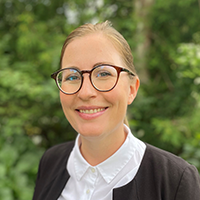Research ethics committees play an important role in safeguarding human beings in research. Respect for human dignity in research has not always been self-evident. The emergence of research ethics has taken place in the wake of ethical scandals and abuses in which society’s most vulnerable have been used and exploited in the name of science. I am thinking, for example, of the Nazis’ cruel medical experiments on children and other vulnerable people.
At a time when the role of ethical review is being vigorously debated in the media and the research community, it is important to do research on the significance of ethical review. In particular, we should explore the question how ethical review serves to protect those most vulnerable from being exploited in research.
In a recent study conducted by myself together with Anna T. Höglund, Sara Frygner-Holm and Tove Godskesen, we focus on ethical issues in research with ill children, who are often considered a particularly vulnerable group in research. We have interviewed members of the Swedish Ethical Review Authority about their perceptions of ethical issues in research applications involving ill children, for example children with cancer.
One thing that members really emphasized was how crucial it is that the researcher provides good, age-appropriate information to children when they invite them to research. Without good information, children are excluded from being involved in a meaningful way in decisions about research participation. Many of the members we interviewed were concerned that good information for children was often missing from research applications. This suggests that we as researchers may need to increase our efforts to really take children’s legal right to information and participation seriously and not leave the decisions about research participation to the parents alone. There might be a need for more practical guidance on how we can inform and ask children about research in an ethically sound and sustainable way.
Children’s active participation in decisions about research participation is ethically important, but so is of course also children’s right to be protected from various risks associated to research. Some populations of severely ill children are “heavily researched,” among them children with cancer. This is of course very good because it enables groundbreaking medical advances in childhood cancer care and treatment. But at the same time, we know that children and their parents can be particularly vulnerable when recruited to research, due to their challenging life situation. They are also very dependent on the healthcare system. For such reasons, the committee members in the study considered it essential that the children’s physical as well as mental health and integrity are sufficiently protected. This means that as a researcher, you should not only focus on medical risks, but also consider how the whole child is affected, both short and long term, by being part of your research project.
The members we interviewed felt they had an ethical responsibility to protect children from “bad research” – when severely ill children give of their precious time and energy, it is especially important that the research is of high scientific quality and answers research questions that are truly important, new and urgent. It has been controversial whether or not research ethics committees should assess the design and quality of research. However, as shortcomings in design and quality can significantly reduce the potential benefits of a project, such aspects should be assessed as part of the ethical review, so that ill children can be spared participation in research that is not likely to lead to new knowledge or medical advances.
Ethical review is governed by laws and regulations. Some members were concerned that the ethical review system risks becoming too one-sidedly focused on legal compliance and formalities, giving ethical reflection to little space. Ethical review of research involving severely ill children undoubtedly places high demands not only on legal competence, but also on clinical and ethical competence, good teamwork and personal qualities such as accuracy and responsibility. Moreover, the emergence of new advanced technologies in research and healthcare constantly presents research ethics committees with new complex ethical issues to ponder and address. Thankfully, philosophy and its ethical principles offer invaluable tools!
So, what is the role and significance of ethical review in research with ill children? As our study suggests, ethical review and research ethics committees have, among other things, a crucial role in monitoring and promoting children’s right to information, participation and protection from harm and risks in research. These are urgent tasks, both from a children’s rights perspective and a research ethics perspective. If you want to know more about our results and read our discussion of the findings, you can find the study here: Research ethics committee members’ perspectives on paediatric research: a qualitative interview study.
Children’s perspectives have not been represented in research ethics to any great extent and more knowledge is therefore needed regarding children’s own experiences of research participation. Therefore, in an upcoming study, we will now interview children with cancer and their parents about how they experienced being asked to participate in research.

Written by…
Kajsa Norberg Wieslander, PhD student at the Centre for Research Ethics & Bioethics, is exploring ethical and clinical aspects of recruiting children with cancer to research studies.
Norberg Wieslander, K., Höglund, A. T., Frygner-Holm, S., & Godskesen, T. (2023). Research ethics committee members’ perspectives on paediatric research: a qualitative interview study. Research Ethics, 0(0). https://doi.org/10.1177/17470161231179663
Ethics needs empirical input





Recent Comments